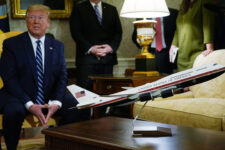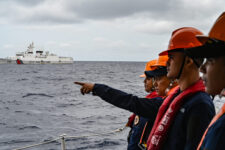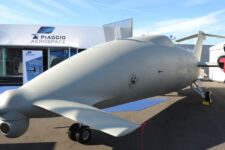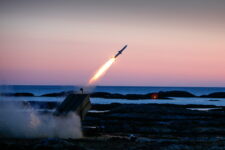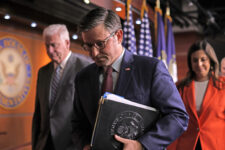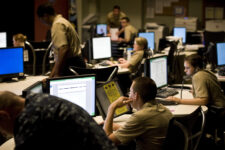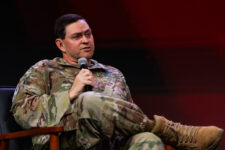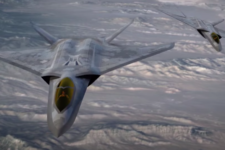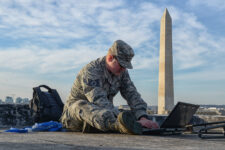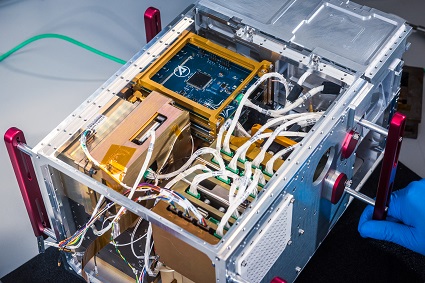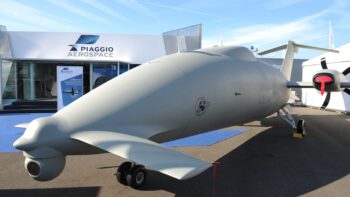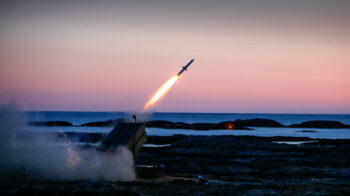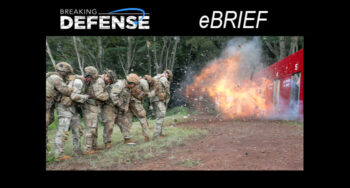
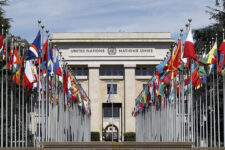
“This paper … provides a framework that could help ensure that verification challenges are not used as a convenient excuse for giving up on space arms control as an option,” writes author Mick Gleason.
By Theresa Hitchens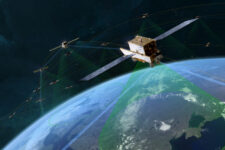
While author Andrew Berglund gives SDA full kudos for its “impressive speed” so far in concluding development contracts and fielding its first satellites, he also warns that those advocating the agency’s approach as the way for all DoD acquisitions in the future may want to curb their enthusiasm given the early stage of the agency’s work.
By Theresa Hitchens
One Maxar official told Breaking Defense today that Maxar’s “mission focus” on NRO will not be affected by the split up.
By Theresa Hitchens
There is growing concern about what happens when different countries’ predictions of an on-orbit collision do not match, said Matt Hejduk, of The Aerospace Corporation. “A man with two watches never knows what time it is,” he quipped.
By Theresa Hitchens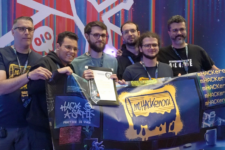
The five finalists in the Hack-A-Sat 4 contest competed in nine different challenges, seven of them involving hacking into the Moonlighter CubeSat built by The Aerospace Corporation and Space Systems Command as a on-orbit cybersecurity testbed.
By Theresa Hitchens
The concept of solar power satellites, first posited in 1968, seems to be back in fashion — not just in the US with initiatives at DoD and NASA, but around the globe, including in Beijing.
By Theresa Hitchens
One critical issue for the commercial space industry identified by the Aerospace study is the potential for their satellites and ground stations to be deliberately targeted.
By Theresa Hitchens
AFRL’s experimental CubeSat, called Recurve, uses artificial intelligence/machine learning to autonomously decide how to route data through large constellations of interlinked satellites in Low Earth Orbit (LEO).
By Theresa Hitchens
Inside this collection, you’ll find a series of stories and infographics hitting the most interesting results from the survey.
By Breaking Defense
“Kinetic destructive tests,” White House nominee for ASD Space Policy John Plumb said, “pose a long term enduring problem to all spacefaring nations, including astronauts.”
By Theresa Hitchens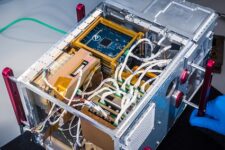
The U.S. Space Force is looking to the commercial satellite industry to make sure that breakthroughs in technologies like artificial intelligence and machine learning are made available to combined commercial/military satellite networks.
By Breaking Defense
“The good news is the government is very interested in the commercial opportunities, but from the industry standpoint, it’s hard to figure out like what door to walk through and how to how to make that contact,” said Steve Isakowitz, CEO of the Aerospace Corporation.
By Theresa Hitchens
Adapting for the future of space requires new ways of envisioning what “success” really means.
By Barbara Braun, Principal Director of Enterprise Systems Engineering Office, The Aerospace Corporation
The Aerospace study found that controlling the creation of dangerous space junk is a regulatory arena “where clarity is badly needed,” for one.
By Theresa Hitchens
